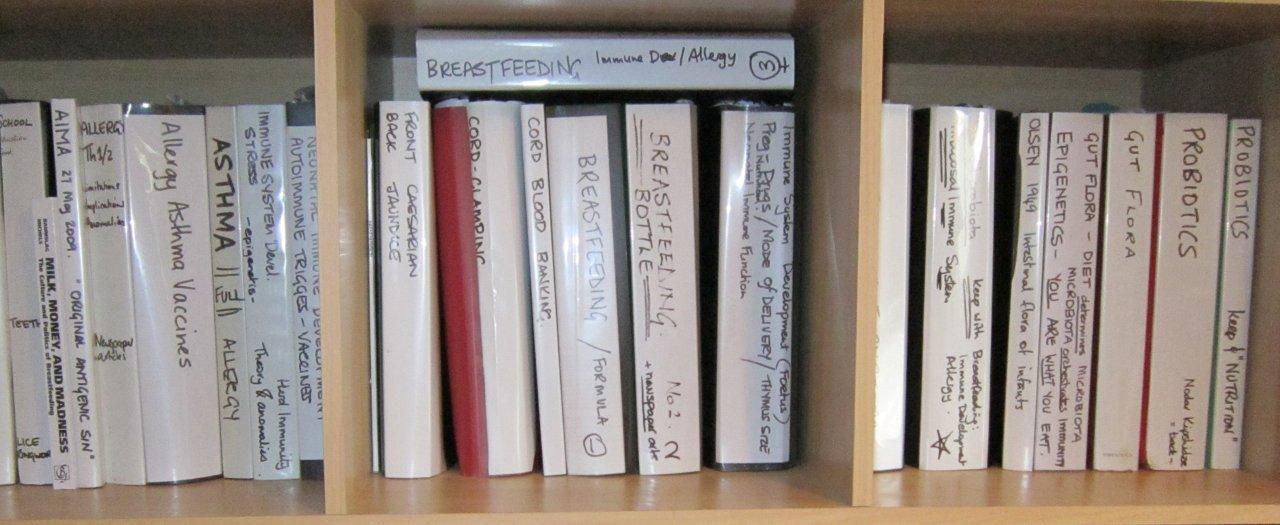It is time the discussion about breast milk changed to fact, not denial. Yes, there should be labels on formula, just as there are labels on cigarettes.
But if formula feeding parents really mean business in terms of accepting that breast is best, then they should be campaigning for a nationwide breast milk bank.
It is also important that people like Lisa Watson, understand a wee bit of history as well, or else the formulastapo might throw us back into the very dark ages of 1980.
32 years ago, as a first time mother in antenatal classes, all we heard was how to sterilize bottles, make formula, and the various ways of juggling a screaming baby in the middle of the night, while getting the temperature cool enough not to scald their gullets.
1980, was the days when breastfeeding your baby was considered “abnormal”.
Breastfeeding in public simply wasn’t done – you didn’t dare.
Our babies were constantly “scrutinised” because their weights lagged behind the “official” graph, which was based on the huge weight gain seen in “Michelin Man” formula fed babies.
Those of us with lighter breastfed babies, had to endure the scorn of not having “superior” babies.
We were told to introduce orange juice straight away, or ribena, because breastmilk didn’t have X, Y and Z. We were instructed to introduce solids early, because otherwise our babies would be brain damaged in comparison to formula babies. I listened aghast, as a paediatrician recommended cooked mince and mashed potatoes by six weeks, because breast-milk was so deficient.
Was this based on medical science? No, because very little had been done by 1980, and what little there was, was suppressed - because it showed the opposite of the then narrow minded medical attitudes.
Support and instructions regarding breastfeeding? Pretty much zero. If you chose to use what you had, you were on your own.
Free formula samples? - all over the place.
As a first time mother, I was the ONLY breastfeeding mother amongst three large wards of mothers who had given birth.
On the second day, my milk had already come in. Much to the staff’s disgust and my embarrassment, I had soaked the bed mattress that night. With no sympathy at all, I was instructed to fold a towel over my breasts the next night, to mop up the excess, and not to commit the same crime again. The afternoon of the second day, knowing that I had milk coming out of my ears, the head paediatrician of the ICU unit stood at the end of my bed, asking for breast milk for a baby for whom formula would have been highly dangerous. He handed me two U-bags, which I promptly filled up while he was standing there.
For the next five days, I supplied the parents with 6 U-bags a day. They came personally to thank me for doing that. That baby’s parents were distraught, because in this normalised formula feeding world, there was no commitment to a breast milk bank, - but through the home birth association, they managed to connect to a mother near them, who continued to provide breast milk.
After I left hospital, I travelled daily to a nearby friend who had a breast abscess so bad, that it took a month to get rid of. During that time, I provided her baby with a morning and lunch feed, while she did the rest from one breast, and as her abscess cleared up, and her own milk supply increased, she was able to fully breastfeed her own baby.
Still having excess milk, I provided surplus to another mother who had acute hepatitis and had to temporarily stop feeding.
We breastfeeding parents endured the superior sad looks thrown our way by formula feeding mothers whose babies were more radiant in their own eyes, as they strutted around with accompanying pride.
We endured the scorn of formula feeding mothers, and the medical system, for two reasons. First, we didn’t have to depend on money and a manufacturer to feed our babies, since we did it ourselves. Secondly, we knew that we were right.
Just as I provided breast milk for parents in 1981, even today, parents who can’t breastfeed, but who want breast milk, will make the effort to track down breastfeeding mothers with milk to spare by the ton. They can be found on facebook, and through other grapevine organisations who put together parents wanting breast milk and willing providers.
However, there is no justification in saying that formula is as good. There is a mountain of research – which is not flawed – which shows that breastfeeding babies have short and long term outcomes which can be far better than formula fed babies. To consider scientific research “faulty science”:

as does Lisa Watson is pure and simple denial of fact. The same sort of denial that lead to the medical system and formula feeding parents in 1980, considering breast feeding mothers, to be some sort of subhuman species.

I have absolutely no problem with parents using formula. The right to informed choice is paramount. And I really don’t care how or why parents who CHOSE to formula feed come to that decision.
But to say that "Breast is not best, formula is not best" is fooling yourself.
Breast milk is NOT just food. Breast milk has functions which go far beyond nutrition. Breast milk has a dramatic and long term effect not only on the immune system development, but gut flora, allergy, brain development, and other health parameters. Breast milk is an immune regulator, a hormone conductor, a bone density wizard and a genetic blueprint scanner. It is a gene methylator, and two years of breast milk lays, stabilises and solidifies the core genetic manual of health for your child, for that child’s whole life. There is absolutely no doubt that breastfed babies have completely different and far healthier health profiles than formula fed babies, both short and long term.
The medical science finally validates what we scorned breast feeding mothers believed back in 1980.
In many ways, the medical system today, is as wimpy about breastfeeding as it was about breastfeeding in 1980.
All they want to do is stick a label on formula?
Pregnant women should be sat down, and given the medical science to read, and if mothers cannot breastfeed, then they should sign up – not for “permission” to formula feed, but for access to a breast milk bank. In terms of mothers who chose not to breastfeed, that's a more complex issue. Why should they "take advantage" of women who are breastfeeding and willing to donate? Access to a breastmilk bank should be prioritized for those who cannot breast feed. But the medical profession won't sit parents down and hand them all the information, because they don't want to "offend" people, even though in 1980, they had no compunction in offending breastfeeding mothers at the drop of a hat.
That the medical profession has not committed to a breast milk bank, even in 2012, is understandable though. It's not just a limp wristed attitudes by the medical profession, though that's part of it. I believe that the medical profession knows that there would be little support for a breast milk bank from those who chose to formula feed, because the fundamental reason for formula feeding is the same as it was in 1980. Convenience. Why spend effort and time to set up a breastmilk bank, and simply be paying mothers to provide breast milk which would mostly be thrown away? Why might that milk be thrown away?
It has been my (strange) experience, that most formula feeding mothers don’t want another mother’s breast milk. They say that reinforces their “guilt”. Dig a bit deeper and you get comments like, “Besides, that mother might have infections like TB, or AIDS or something nasty that I don’t have….”.
Never mind that these supposedly unhealthy mothers have healthy babies! So again, it’s another self-constructed barrier on the part of parents who want to use formula and justify it.
Most parents formula feeding by choice, just want to go to the shop, buy a tin of something made from non-human sources, and feel good about it, and have the "right" to not be "judged". That is their right.
But at least .... in 2012, the medical system is on the side of breast feeding parents.
For a change.



